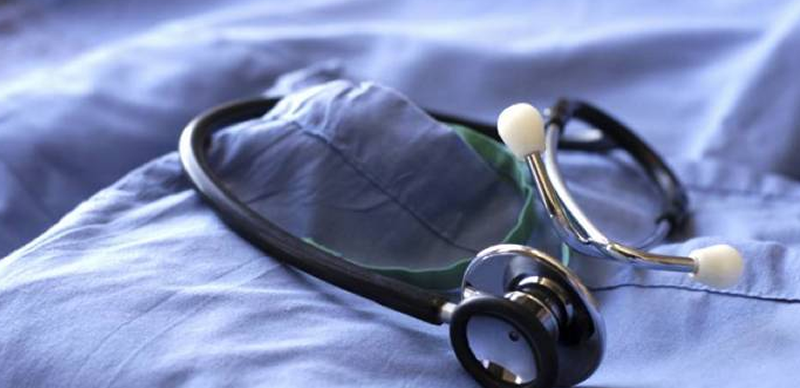
Junior doctors – those below consultant level – will walk out for five days from 7:00 am (0600 GMT) on July 13 until the same time on July 18, the British Medical Association said.
The stoppage – just after the NHS marks its 75th anniversary – follows a 72-hour strike this month in opposition to the government’s refusal to budge on its offer of a five-percent pay increase.
Medics say they have seen a 26-percent pay cut in real terms in the last 15 years, as salaries have failed to keep pace with inflation.
They want pay restored to 2008-2009 levels but the government says this would mean an average pay award of about 35 percent this year and is too costly.
Robert Laurenson and Vivek Trivedi, who jointly chair the BMA junior doctors’ committee, said the government seemed intent on letting the NHS “decline to the point of collapse”.
They highlighted a BMA survey that said more than half (53 percent) of the nearly 2,000 junior doctors who responded had received offers to move abroad in the past four months.
The government of South Australia state had even paid for advertising trucks to be sent to picket lines offering better pay if doctors emigrated, they claimed.
Laurenson and Trivedi said the government was refusing to reopen talks on pay, forcing them to stage “the longest single walkout by doctors in the NHS’s history”.
The strike could be averted if the government comes up with a “credible offer” on pay restoration, they added.
A series of strikes by doctors, nurses and other medical staff over below-inflation pay rises and conditions has hit patient care, forcing the cancellation or rescheduling of appointments.
Health officials say it has disrupted services, just as the service battles to clear a huge backlog in treatment caused by years of under-funding and under-staffing, and by the Covid pandemic.
The NHS marks its 75th anniversary on July 5. Funded by general taxation, it was set up in 1948 to provide free health care “from the cradle to the grave”.
AFP





